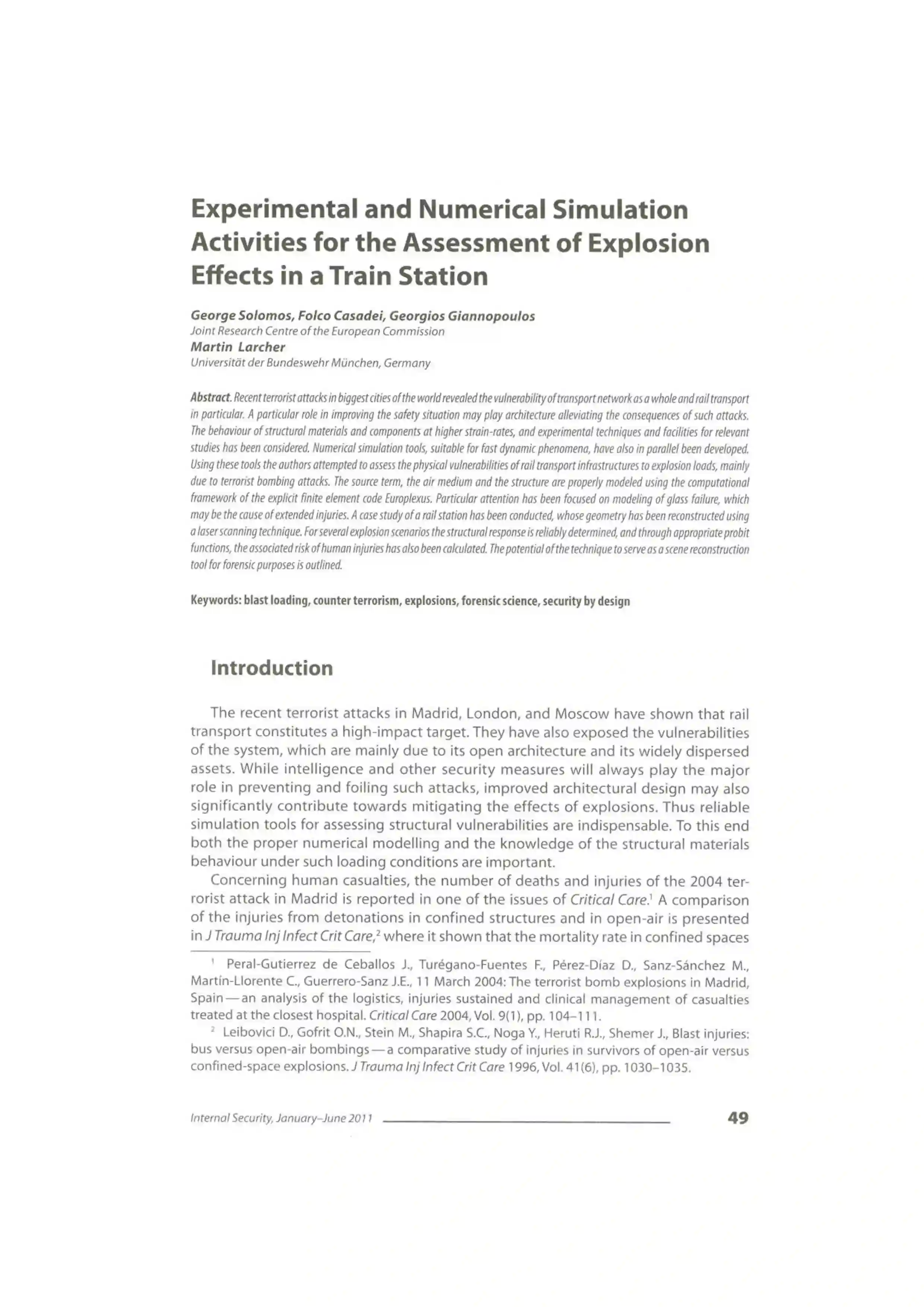
scientific article
Blast Load Analysis
2011
- Abstract
- The behaviour of structural materials and components at higher strain-rates, and experimental techniques and facilities for relevant studies have been considered. Numerical simulation tools, suitable for fast dynamic phenomena, have also in parallel been developed. Using these tools it is attempted to assess the physical vulnerabilities of rail transport infrastructures to explosion loads, mainly due to terrorist bombing attacks. The source term, the air medium and the structure are properly modelled using the computational framework of the explicit finite element code Europlexus. Particular attention has been focused to the modelling of glass failure, which may be the cause of extended injuries. A case study of a rail station has been conducted, whose geometry has been reconstructed using a laser scanning technique. For several explosion scenarios the structural response is reliably determined, and through appropriate probit functions, the associated risk of human injuries has also been calculated. The potential of the technique to serve as a scene reconstruction tool for forensic purposes is outlined.
- Authors
- SOLOMOS George; CASADEI Folco; GIANNOPOULOS Georgios; LARCHER Martin
- Year
- 2011
- Publisher
- Police Academy in Szczytno
- Citation
Solomos G, Casadei F, Giannopoulos G, Larcher M. Experimental and numerical simulation activities for the assessment of explosion effects in a train station. Internal Security 3 (1); 2011. p. 49-62. JRC62704 - Identifiers
JRC JRC62704 ISSN 2080-5268
Documents are published in the JRC Publications Repository and are protected by copyright,with all rights reserved, unless otherwise indicated.
Additional information:https://ec.europa.eu/info/legal-notice_en#copyright-notice
Additional information:https://ec.europa.eu/info/legal-notice_en#copyright-notice
